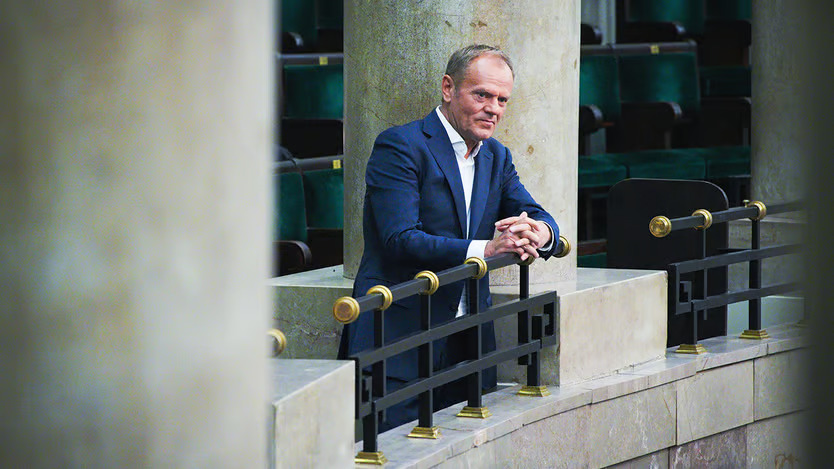Since December, Kalina Ostrowska, a 16-year-old, has been surprising her parents by coming home from school and tuning in to the Sejm, Poland’s parliament. This newfound interest in politics among young Poles is reflected in the increased voter turnout, particularly among those under 30, reaching 69% in the October election. The youth overwhelmingly supported the opposition, aiding Donald Tusk’s Civic Coalition (KO) in defeating the hard-right Law and Justice (PiS) party that had governed Poland for eight years.
The Sejm’s appeal as a televised spectacle is attributed to its new speaker, Szymon Holownia, leader of the center-right Poland 2050 party, now part of Tusk’s alliance. Holownia, a former talk-show host, has become a charismatic figure in parliamentary debates. However, the real drama unfolds in the broader conflict within Poland’s government.
Similar to other populist parties in power, PiS took control of independent state institutions, leading to the withholding of EU funds due to rule-of-law violations. Tusk is now tasked with restoring the rule of law by revising statutes and removing loyalists, but President Andrzej Duda, affiliated with PiS, has promised to veto these efforts.
The constitutional tribunal, dominated by PiS appointees, further complicates the situation. Balancing the restoration of the rule of law without compromising the rule of law itself poses a significant challenge for Tusk’s government.
The judiciary stands out as the primary battleground, with PiS altering laws to control appointments and promotions of judges. The conflict extends to the National Council of the Judiciary (NCJ), responsible for nominating judges, and the fusion of justice minister and prosecutor-general offices. Justice Minister Adam Bodnar aims to address these issues by proposing reforms, such as splitting the posts and allowing judges to select NCJ members. However, the reforms require Duda’s approval, presenting a major hurdle.
Media control is another contentious area, with PiS transforming state media into propaganda outlets. Tusk’s government is attempting to reorganize the media by putting them into liquidation, leading to legal challenges. The state’s economic institutions, particularly state-owned companies, also face scrutiny, with allegations of undervalued asset sales and political motivations.
Despite the challenges, many Poles find the political turmoil intriguing. Tusk’s KO has gained approval since December, while PiS’s ratings have declined. The judiciary remains a significant challenge, and undoing PiS’s influence on the state institutions is anticipated to be a protracted and contentious process.

